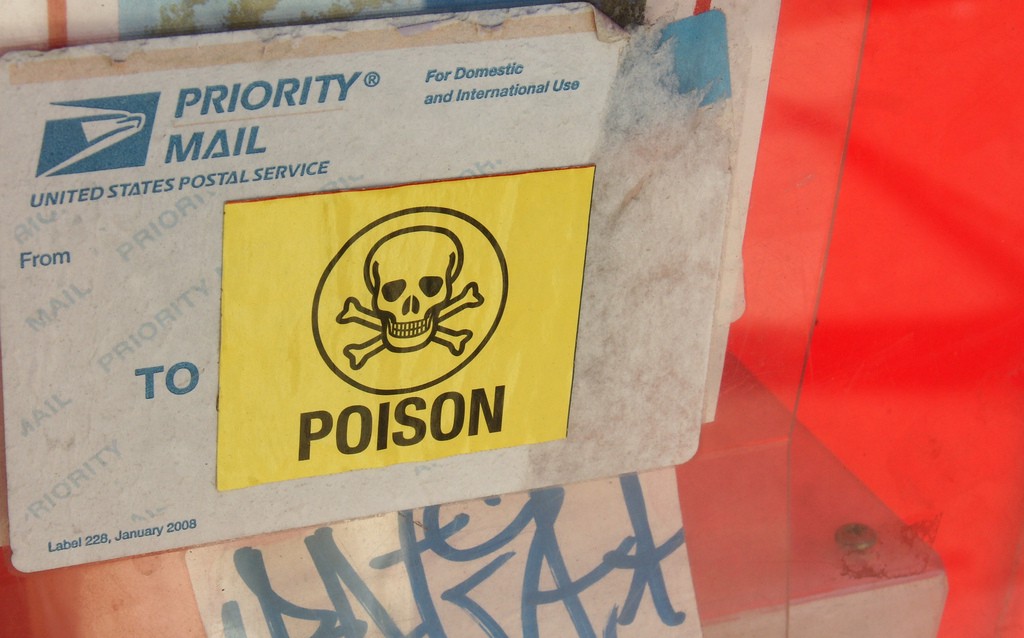Will Someone Please Tell Me What They Think a "Toxin" Is?
Everyone talks about them but no one knows what they are.

Last week, I was in an exercise class where the instructor told us to breathe deeply, and that this was a great way of “releasing toxins.” I wondered what she thought she meant by this. Also last week, I had food poisoning from some poorly cooked fish. That was the result of an actual toxin, which is to say, a POISON that made me near-immediately and violently physically ill. The technical definition of a toxin is that it is a type of poison made from organic matter—i.e., biologically, in nature, by an organism, rather than artificially synthesized.
Once upon a time, “detox” used to mean “a treatment for substance abuse or addiction.” Now it means spicy lemon water. These days you see the word “toxin” everywhere. On wellness blogs, in GOOP newsletters, in Instagram ads for clay face masks that will detoxify your face. Infrared saunas that will detoxify your fat deposits. Bullshit websites that tell you, “Any physical activity that gets your heart pumping is a great detoxification option.”


What?
No.
I’m not against doing whatever feels good and happens to be good for your well-being for, like, cosmetic or cardiological reasons, but DETOXIFICATION? No. Unless you have had Botox® (literally botulinum toxin!!!!!!!!!!!!!) injections, you are NOT walking around with actual toxins in your face. The only thing that a clay mask is drawing out of your pores is oil, dead skin cells, and probably not even really that much dirt if we’re being honest! Like, sorry, but there is no Brown recluse venom hiding out in your pores. There’s no lurking shellfish poison that you can sweat out in a sauna.
In reading all of these blogs and ads and bullshit peddlers, I have never once seen anyone acknowledge WHAT exactly they think a toxin is. You try it! Go back in your Gmail archives of all the newsletters and see if you can find one source who identifies any toxins by name or chemical compound. At best, they might say “toxic chemicals,” or “environmental toxins” but what do they mean by that? Car exhaust? Not a toxin. Bad, sure. But not a toxin. And probably not giving you zits. No one is trying to say that nitrites in processed meats don’t cause cancer—we know they do—but nitrites are not toxins and you cannot sweat or juice them out. So what the fuck are these wellness people talking about?
What’s probably happening here is a misusage of the term toxin via backformation from the adjective “toxic,” which essentially just means poisonous. Toxicant would be a more preferable, if pedantic, word for these purposes. But “poisonous” is a nebulous term—it means causing illness or death of a living organism. Does your skin’s sebum really cause you illness? Are carbs going to kill you? No. (I will make an exception here for alcohol, which I think by definition qualifies as a low-grade poison that I have the legal right to drink if I want to sometimes.) Unless of course people who think sugar is poison mean “poisonous” the same way we mean “toxic” as when talking about something less tangible, like a person, say, or an idea. This person is bad for us, that idea is no good. This is a moral judgment, not a scientific or even empirical one.
So stop calling your imaginary wellness demons “toxins.” Google around enough and you might find reference to Persistent Organic Pollutants (POPs)—synthetic organic compounds like pesticides or dioxins, which are resistant to breakdown and stored in adipose (fatty) tissue. Watered down on a wellness blog that will read something like “toxins stored in your belly fat.” Okay, sure, that is technically correct, if wildly misleading. Did you ever stop to think that your fat was actually absorbing the bad chemicals to protect your other organs and tissues from overexposure? Yes, dummy. Is that accumulation ultimately detrimental to your body too? Probably yes. All the blessings are also curses.
Eating kale isn’t going to remove “impurities” from your soul. But do whatever you want. Just please, going forward, choose your words more carefully—the toxins have gone to your head.
